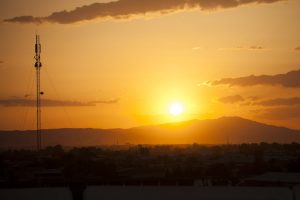The second Consultative Meeting of Central Asian presidents took place on November 29. Originally planned to take place in the spring of this year, the meeting was postponed without clear reasons nor future dates. Concerns appeared that the budding exclusively regional meeting might cease to continue. Tashkent’s announcement of the possibility to join Russia’s Eurasian Economic Union two months ago exacerbated these concerns with Tashkent’s possible loss of interest in its immediate neighbors in favor of the greater regional organization.
This year’s regional meeting was different from the first one, which took place in Nur-Sultan in the spring of 2018, with the participation of Turkmenistan’s President Gurbanguli Berdimukhamedov, who had sent the chairwoman of the parliament of Turkmenistan to the first meeting. President Berdimukhamedov is usually finicky about regional meetings as he possibly questions their value and his participation this year made the meeting truly regional.
What emerges from each president’s official statement (Kazakh, Kyrgyz, Tajik, Turkmen, Uzbek) delivered at the meeting is the message of significance and seriousness of regional cooperation for them. The leaders of Central Asian countries unquestionably see value in regional cooperation and are ready to reinforce this. One area the countries expressed their desire to cooperate more is trade, as increasing regional trade was mentioned in every official statement delivered by the presidents. Kyrgyzstan’s President Sooronbay Jeenbekov brought up trade the most. He reminded the meeting that trade among the Central Asian countries was low and proposed greater trade initiatives with countries in the region.
Uzbekistan’s President Shavkat Mirziyoyev heavily focused on launching various joint economic projects with a greater emphasis on the region. He emphasized the vision of embracing regional benefits when countries negotiate individually projects related to trade, energy, and tourism. One regional transportation project that was brought up several times by more than one president was the China-Kyrgyzstan-Uzbekistan railroad project, which has also been increasingly embraced by Central Asian countries.
All leaders except Nursultan Nazarbayev spoke about their worries in the regional water issues. They alluded to the reduction of the water source against the background of increasing regional demands. Tajikistan President Emomali Rakhmon reminded the group two thirds of the region’s water resources take their start in his country, but that disappearing glaciers in his country were a worrisome trend. President Jeenbekov also mentioned that the remainder of one third of the region’s water resources originated in his country and proposed a plan to counter water issues by setting up a water management system to compensate Bishkek. President Berdimukhamedov proposed to involve international organizations in the preservation and usage of regional water, while President Mirziyoyev offered to set up an Aral Sea trust fund.
At the post-meeting briefing delivered by President Mirziyoyev, he braved to bring up geopolitics. Without calling out Russia, he spoke of increasing closeness of the regional countries that was not directed against any country. At the same time, he said that the regional closeness was an unstoppable process and Central Asian countries were increasingly dealing with regional issues with a regional mindset. He also reassured leaders that the consultative meetings will be a reoccurring event without turning into a regional organization.
The first and second regional meetings have so far been symbolic, where presidents catch up with each other. The meetings have given an opportunity to presidents to channel their visions for the region they wish to build together. The decades-long regional trade, water, transportation issues will continue to dominate these meetings. The presidents have stayed away from bringing up disagreeable bilateral and regional matters leaving them to bilateral dealings. So far regional issues are far from being solved in these venues.

































